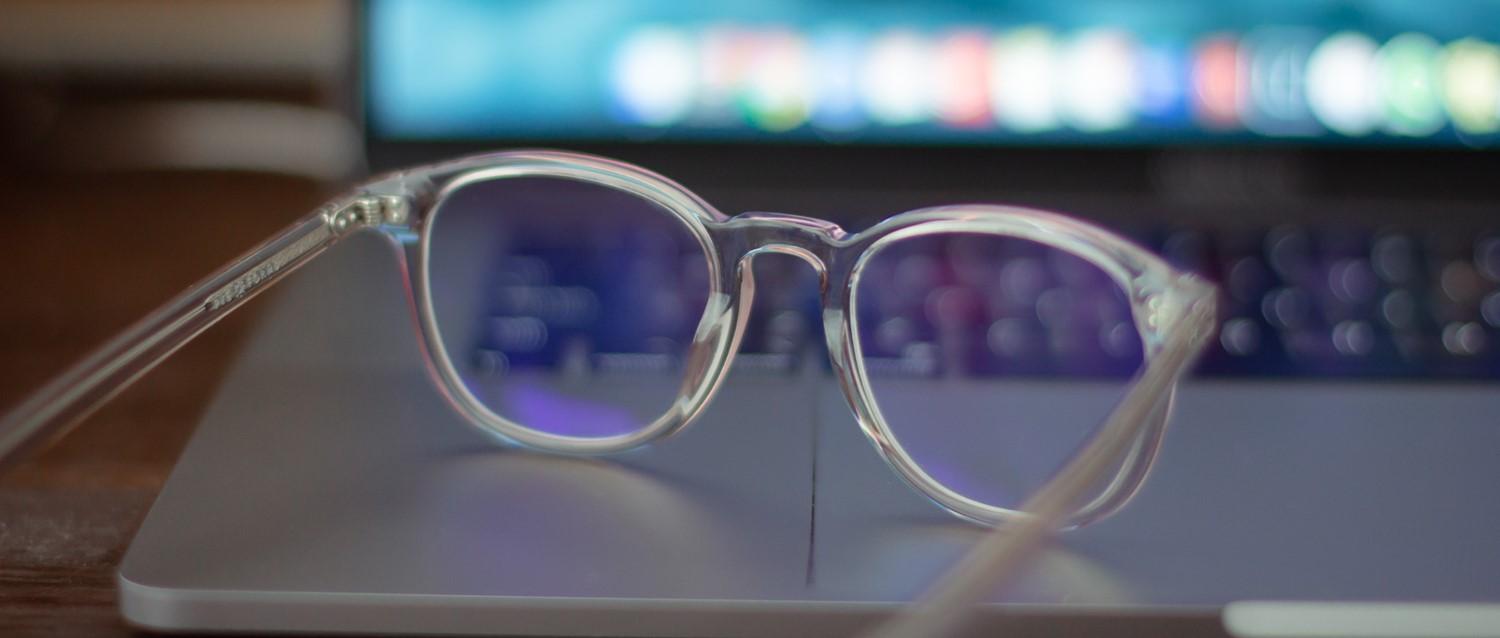
When should you worry about your eyes?
Peer reviewed by Dr Krishna Vakharia, MRCGPLast updated by Victoria RawLast updated 8 Aug 2024
Meets Patient’s editorial guidelines
- DownloadDownload
- Share
- Language
- Discussion
It is recommended that you get your eyes tested every two years - even if your vision seems fine. Your test will check for your vision and eye health ill and check for any emerging problems.
Here we talk about what changes and issues in your vision you should look out for and when you should see a specialist .
In this article:
Video picks
Continue reading below
Finding it harder to read
Even if you haven't needed glasses in the past, many people aged 40 and over may start to require a prescription for reading glasses. This is known as presbyopia and is a normal change in the eyes' ability to focus at different distances.
If you begin to gradually notice problems with reading texts up close, or find you have to hold certain items - such as a restaurant menu - further away to see them properly, it may be a sign of this natural alteration.
If you notice these sorts of changes, it's important to make an appointment with your optician. They will be able to rule out any other causes and prescribe you appropriate glasses or contact lenses.
Blurred vision
Back to contentsIf your vision becomes blurry, it can be alarming. But although it's important to get checked out quickly to rule out more serious problems, it may be caused by something more harmless.
Robert Longhurst, Consultant Optometrist, Phoenix Hospital, Harley Street, London says: "If your vision is blurry, you need to ask yourself the following questions:
Are your eyes suddenly blurry or has it been a gradual process?
Are your eyes always blurry or just sometimes?
Is it one eye that is blurry or both of your eyes?
"Vision that is only sometimes blurry - and that clears after blinking - is quite often a dry eye. A gradual blurring of vision that cannot be corrected with glasses is sometimes caused by developing cataracts.
"However, if somebody has a sudden blurring of their vision, this is more likely to be something serious, such as a detached retina or a stroke. Both require urgent medical attention - even if the vision comes back after a while."
Sudden loss of vision
If you lose your vision entirely - even if it comes back after a short period of time - it’s important to seek urgent medical advice.
"Amaurosis fugax is a temporary loss of vision in one or both eyes due to a lack of blood flow to the retina. This needs urgent investigation as it could be a precursor to a stroke," explains Longhurst. "As this could be a symptom of a serious condition, it's important to seek emergency care."
Continue reading below
Visual disturbance
Back to contentsSome people have visual disturbances, which range from seeing straight lines as wavy, or zig-zags or shimmering light.
"Others may have visual hallucinations, such as seeing people you know aren't there - which is surprisingly common," says Longhurst.
Floaters
"The most common visual disturbance is probably floaters, which are the little black spots or cobwebs you get in your vision that drift about as you move your eyes. Most of the time, floaters are caused by changes in the jelly inside the eye as we get older. We all tend to notice floaters from time to time and they are usually nothing to worry about.
"However, if you have a sudden increase in floaters, you should see your optician - especially if you have flashing lights too - as this may indicate a posterior vitreous detachment. This is where the jelly changes where the retina is. For most people, it's harmless, but occasionally the retina will tear, which is why it is important to be seen. A retinal tear can lead to a detachment and sight loss.
"Anyone concerned about any visual disturbance should see their optician. Anyone with flashing lights and floaters needs to be seen urgently in A&E or an eye hospital if there is one close to you to make sure they do not have a tear," advises Longhurst.
Red eyes
Back to contentsIt's not uncommon for people to experience a reddening of one or both of the eyes. There can be a number of different causes from irritation to infection.
Hay fever
During spring and summer months, many people suffer from hay fever, which can cause eye irritation and redness. If you have hay fever and experience this symptom, you may find eye drops containing antihistamine help to reduce redness and itching.
Conjunctivitis
Allergic or infective conjunctivitis is one of the most common causes of red or pink eye. "This is a common eye inflammation usually caused by an irritant or a bacterium or virus," explains Longhurst.
This condition is often infectious, so you may need to take time off work or study. If you experience symptoms alongside the redness that include itching, watery eyes, or pus, it's likely that conjunctivitis is the cause. This condition can often be treated at home, using boiled and cooled (sterile) water and cotton wool to clean the eye area.
However, it may require additional medication. Your pharmacist can provide the same medication you would get on prescription from your doctor, and can also confirm if any further action is needed.
Blepharitis
Blepharitis presents in a similar way to conjunctivitis, but is an inflammation of the margins or edges of the eyelid. It can be accompanied by the redness and itching of conjunctivitis, as well as flakes and crusting around the eyelid area. Some patients complain that their eyelids are stuck together in the morning. This condition can usually be treated by regular eyelid hygiene - outlined in more detail in our leaflet - but can take a considerable time to settle.
Subconjunctival haemorrhage
Despite the alarming name, this cause of a sudden-onset painless red eye is usually not serious, and is more like a bruise on the eye. "This type of bruise can be caused by injury, or even a cough or sneeze," explains Longhurst. "Rarely, it may also be a symptom of high blood pressure."
Other causes
If you experience red eye that is accompanied by light sensitivity, it may be a condition called uveitis, which is an inflammation of the middle layer of the eye. It's important to seek medical advice for this combination of symptoms as it may be necessary to treat with steroids.
Contact lens wearers
In addition, if you are a contact lens wearer, this can make you more susceptible to certain infections. If you experience any of the above symptoms, remove your contact lens and speak to your optician or pharmacist.
"Although for the most part, a red eye does not have a sinister cause, anyone with red eye should get it looked at," advises Longhurst. "Opticians are trained to diagnose most causes of a red eye and some can even prescribe medication."
If you are unable to see an optician, ask your pharmacist for advice.
Continue reading below
Eye pain
Back to contentsEye soreness or pain can be a worrying symptom, but is not necessarily a sign of something serious unless teamed with other symptoms. Nevertheless, if you suffer from eye pain, it's important to see your optician. If the pain is severe and accompanied by visual changes, it's time for an immediate trip to A&E.
"Eye pain without any other symptoms - such as a red eye - is rarely serious," explains Longhurst. "And I see a lot of patients with eye pain that feels as though the pain is coming from behind their eye. But it's actually because of an issue with their cornea at the front of the eye. Quite often this is just dry eye or a foreign body.
"Eye pain can signify something more serious, especially if it is accompanied by a red eye, painful eye movements, or sensitivity to light. For example, eye inflammation can cause your eye to be painful. Depending on where the inflammation is, this could be sight-threatening. My advice to anyone with eye pain would be to call their optician for advice or go to A&E if your optician is closed."
Patient picks

Eye health
How to live with severe eye floaters
Eye floaters are usually thought of as a nuisance rather than a chronic condition. But for some people they can significantly affect quality of life. So how do you learn to live with them - and what are the treatment options?
by Elizabeth Sulis Kim

Eye health
How to relieve itchy eyes in the summer
We all know the importance of wearing sunscreen and protecting our skin from the sun in the summer, but did you know your eyes also need looking after as well? It's not just the sun you need to protect them from - there's a whole range of eye problems you might need to navigate in the summer, including itchy eyes.
by Andrea Downey
Continue reading below
Article history
The information on this page is peer reviewed by qualified clinicians.
Next review due: 8 Aug 2027
8 Aug 2024 | Latest version
27 Jul 2021 | Originally published
Authored by:
Gillian Harvey

Ask, share, connect.
Browse discussions, ask questions, and share experiences across hundreds of health topics.

Feeling unwell?
Assess your symptoms online for free
Sign up to the Patient newsletter
Your weekly dose of clear, trustworthy health advice - written to help you feel informed, confident and in control.
By subscribing you accept our Privacy Policy. You can unsubscribe at any time. We never sell your data.